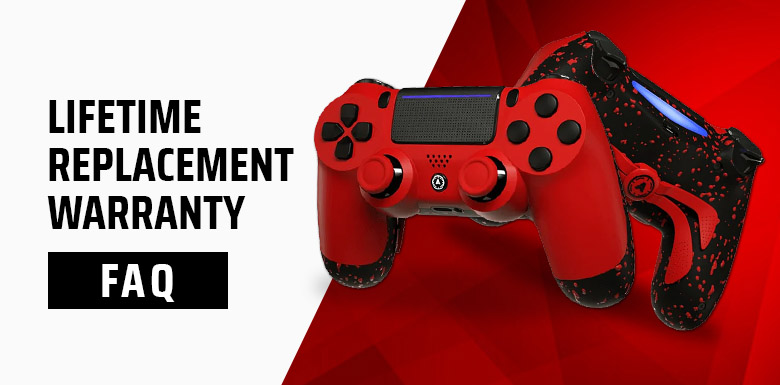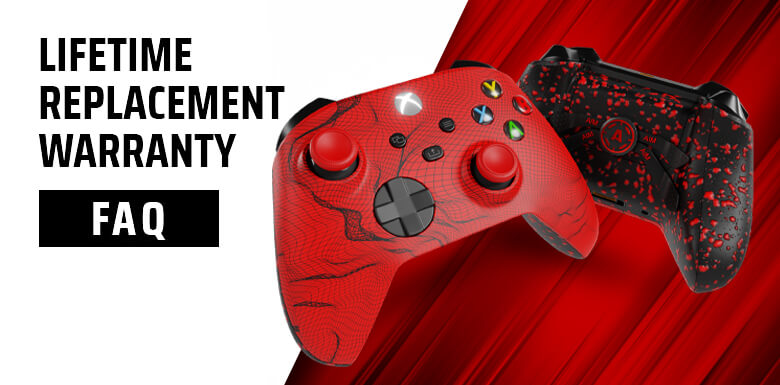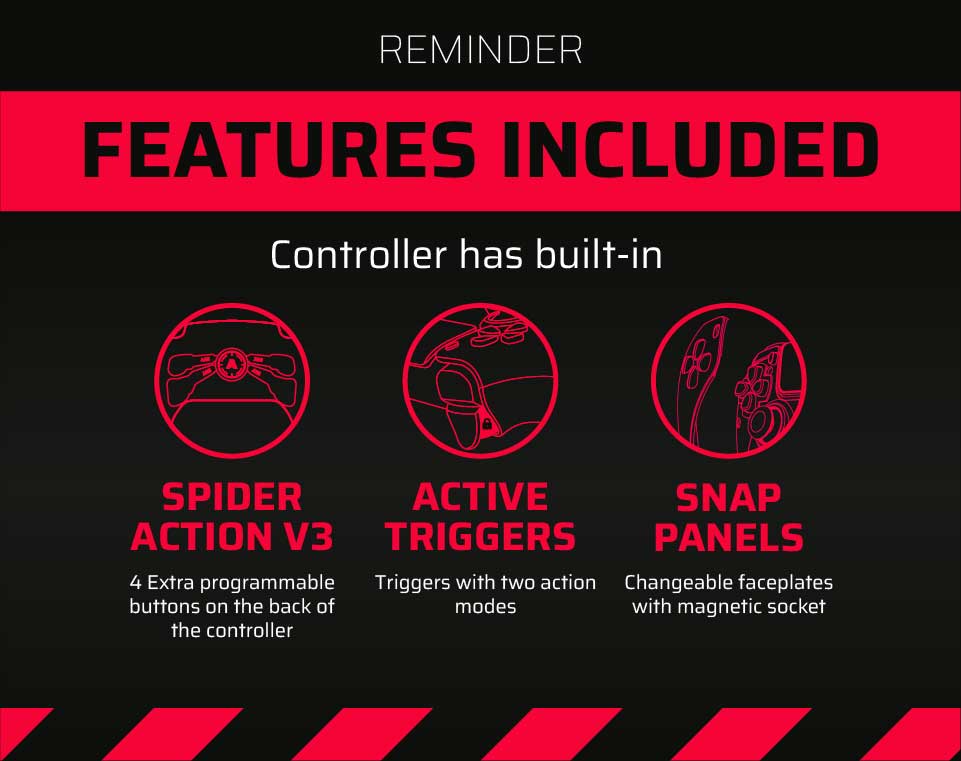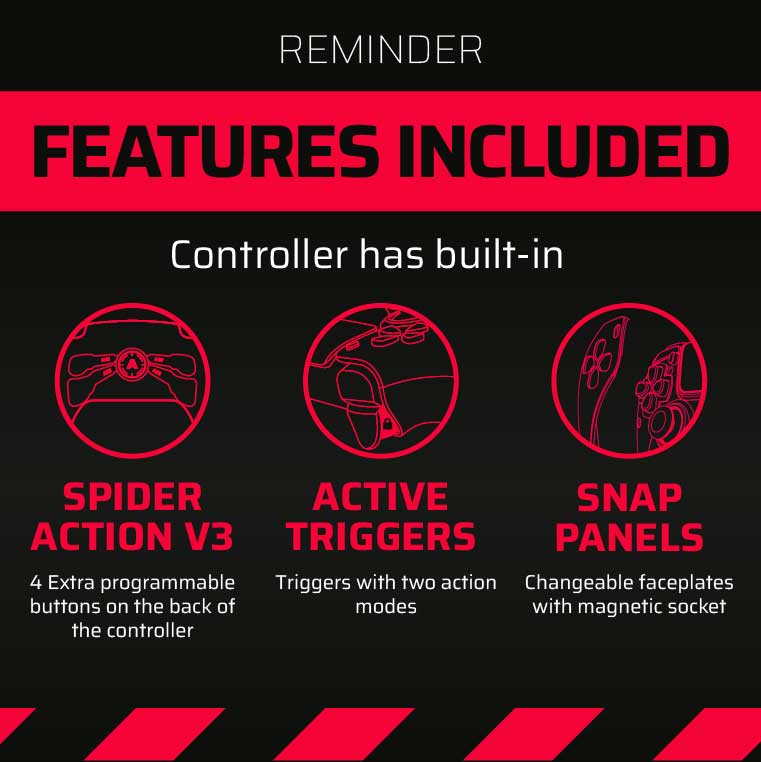Among video game controllers, PlayStation is one of the most well-known. While the company’s history with controllers is filled with notable advancements and embarrassing mistakes, it also has a wealth of legend.
We thought it would be fun to take a look back at the progress of PlayStation controllers since the launch of the DualSense, the controller for the PlayStation 5 platform. For more than two decades, the DualShock controller has linked millions of gamers to the industry’s greatest gaming experiences, starting with its 1994 debut and continuing with the PS5 controller, DualSense.
Here, we’ll take a look at how the PlayStation controller has evolved over the last 25 years, and that’s exactly what we want to do. Let’s look back at the history of Sony’s famous controllers for the PlayStation.
PS1 Controller
Sony didn’t just choose forms at random; it deliberated about it. Additionally, they represented other actions, such as Triangle for POV, Circle for confirming selections, Cross or X for canceling, and Square for menus. Many games currently utilize the Circle to undo selections, whereas the Triangle is reserved for menu navigation.
With the debut of the PlayStation One in 1994, the PlayStation Controller was a solid product. However, better things were on the way. Sony unveiled the Dual Analog Controller at the PlayStation Expo in 1996 and 1997.
There were three modes of operation, similar to the PlayStation Controller’s two analog sticks. Digital Mode was available when playing using a controller’s directional buttons and ignoring the analog sticks.
The Analog Flightstick was based on Sony’s short-lived PlayStation Analog Joystick. In contrast, the Analog Joystick enabled the sticks in the second. Western gamers voiced their displeasure with the Dual Analog Controllers’ long handles and lack of rumble.
During the time, it was assumed that Sony was lowering the cost of production. The business also acknowledged rumbling as a factor in controller troubles; hence the omission was warranted. The rumbling copyright infringement battle was taking form behind the scenes. In April 1997, Sony debuted the PlayStation Analog Controller, discontinued in 1998.
PS2 Controller
Sony considered a number of different controller prototypes. But they finally settled on a design that was both recognizable and slightly unique for the PlayStation 2. As the name suggests, the DualShock 2 was just an upgraded DualShock.
It also maintained the analog enable button from the previous model. The DualShock 2 controller differs from its predecessor in a number of ways, most of which are aesthetic. However, there are some differences between the DualShock 2 and its predecessor.
The DualShock 2’s pressure-sensitive buttons are the most noticeable. This function allowed gamers to delicately apply the gas in Gran Turismo rather than pressing the pedal to the floor each time.
As new consoles were anticipated to come with completely redesigned controllers, the DualShock 2 delivered a familiar but outstanding controller experience. According to current sales figures, Sony’s choice to persevere with the PlayStation 2 was wise. Sony experimented with different designs for future systems, including the PlayStation 3 and PlayStation 4.
PS3 Controller
There will be a dissertation written on the PS3’s debut in its entirety, but the controller was unveiled oddly. The ‘boomerang’ controller was the first concept to be shown out. The Boomerang was a massive, ungainly device that seemed and appeared to be as large as the console itself.
The PS3’s SixAxis controller was given to early adopters instead, which featured a design identical to the previous two controllers. When the system was released in 2006, there was no rumbling due to a lawsuit. But it did include motion controls, which enabled you to flick the controller in whatever way you chose; you could do so as long as your game supported it.
To some extent, you would be correct. Only a few games, such as Lair, benefited from it. The case was resolved, and the DualShock returned with a full rumble and its wireless capabilities. Finally!
Although the pressure-sensitive buttons were absent from this version, the ability to wirelessly connect up to four controllers to a console simultaneously was a significant upgrade over the previous version, which required the purchase of a separate ‘multitap’ device.
So, there was a ‘PS’ button, which allowed you to quickly access the console’s operating system, which allowed you to switch between games, entertainment applications, and messages. This is a decent update.
PS4 Controller
The PS4 was launched on November 15th, 2013, marking the first time that the console was released in the United States rather than Japan. A significant alteration was made to the PS4 controller for the new PlayStation system. Although the DualShock 4 seemed to continue the previous generation, it was really much different.
Changes to its shape and size were also implemented in response to player feedback, making it more similar to the Xbox controllers in terms of size and durability. In addition, the battery life and recharge speed have been improved, and the mini-USB connector on the rear has been changed to Micro-USB for connecting to the console. It, of course, had the greatest battery life of all time.
The most notable alteration was made by eliminating the Select and Start buttons and installing a touchpad like that found on a laptop. PS button was relocated farther down and placed just below a real speaker utilized in the PS4 controller for in-game sound. At the same time, the pad could be touched on both ends to launch maps or menus.
Start was renamed to “options” and became a small knob. At the same time, Select was rebuilt as a “sharing” button that players could use to snap screenshots, record gameplay, or broadcast online without needing a computer. At the time, the Gamepad Sony PlayStation 4 DualShock appeared like a flawless design that couldn’t be improved upon in any way.
Motion controls were redesigned for PS4 games. In addition to the native movement, the PS Camera could identify the new lightbar on the back for more sophisticated motion movement. Other than these features, gamers may put their headsets directly into the PS4’s bottom socket without dongles, as with PS3. The DualShock logo will no longer appear on a Sony system after this.
PS5 Controller
This latest PlayStation system, the PlayStation 5, contains a successor to the DualShock 4 controller. All of the Gamepad Sony PlayStation 5 DualSense’s functions were brought over from the DS4, but in a sleeker appearance that was in keeping with the PlayStation 5’s new aesthetic.
With an inbuilt microphone that can be muted with a button directly beneath the PS button, players may converse without the need for a headphone. The motion controls, trackpad, share button, and speaker are all still there. Recharging is now done through USB-C.
Adaptive triggers and haptic feedback, on the other hand, are the most significant advancements in this generation. To enhance immersion, the controller itself may now provide obvious resistance in the triggers to further enhance the user experience.
There are several ways to experience this sensation, such as drawing a bowstring. PlayStation gamers may also benefit from using vibration to imitate the recoil of a pistol or varied textures on the ground. Those without a wired or wireless controller PS5 will be able to communicate with each other using the PS5 controller’s built-in microphone.
Conclusion
There have been five generations of PlayStation controllers that have provided pleasure and excitement to people all around the globe. It is hoped that Sony will continue to do so in the future. For the time being, we may all find delight in getting to know the PlayStation 5.
Meta Description
Every PlayStation controller to date, including the brand-new PS5, is examined in this guide. Explore the history of the PlayStation controller, from the PS1 up to the PS5, with us.


















Latest news
How Controller Maintenance Prevents Drift, Stick Drift, and Joystick Issues in PS5 and Xbox One Controllers
How Controller Maintenance Prevents Drift, Stick Drift, and Joystick Issues on PS5 and Xbox One [...]
Dec
Master Controller Settings for FPS Games
Master Optimising AimController for Competitive FPS Games — Controller Settings for FPS Games Ranked FPS [...]
Nov
Is a Custom Controller Build Wroth it for Racing and Fighting Games
Customizing Controller for Racing & Fighting Games: Wireless Custom Controller Build, Design, and Style Racing [...]
Nov
Are Customizable Controllers Worth Its Price?
Customizable Controllers: The Future of PC Gaming A controller is one of the most essential [...]
Oct
Top Controller Settings for Battlefield 6
The Best Controller Settings for Battlefield 6 Battlefield 6 arrives in 2025 to redefine first-person [...]
Oct
Top Gaming Trends of 2026
Key Gaming Trends in the Industry of 2026 The gaming industry in 2026 faces constant, [...]
Aug
How To Use a PS5 Controller on PC?
How to Use the PS5 Controller on PC: A Complete Guide to Connect and Use [...]
Aug
Mortal Kombat Series – Legendary Fighting Game
Mortal Kombat Series Keeps Evolving Mortal Kombat series isn’t just a video game — it’s [...]
Jul